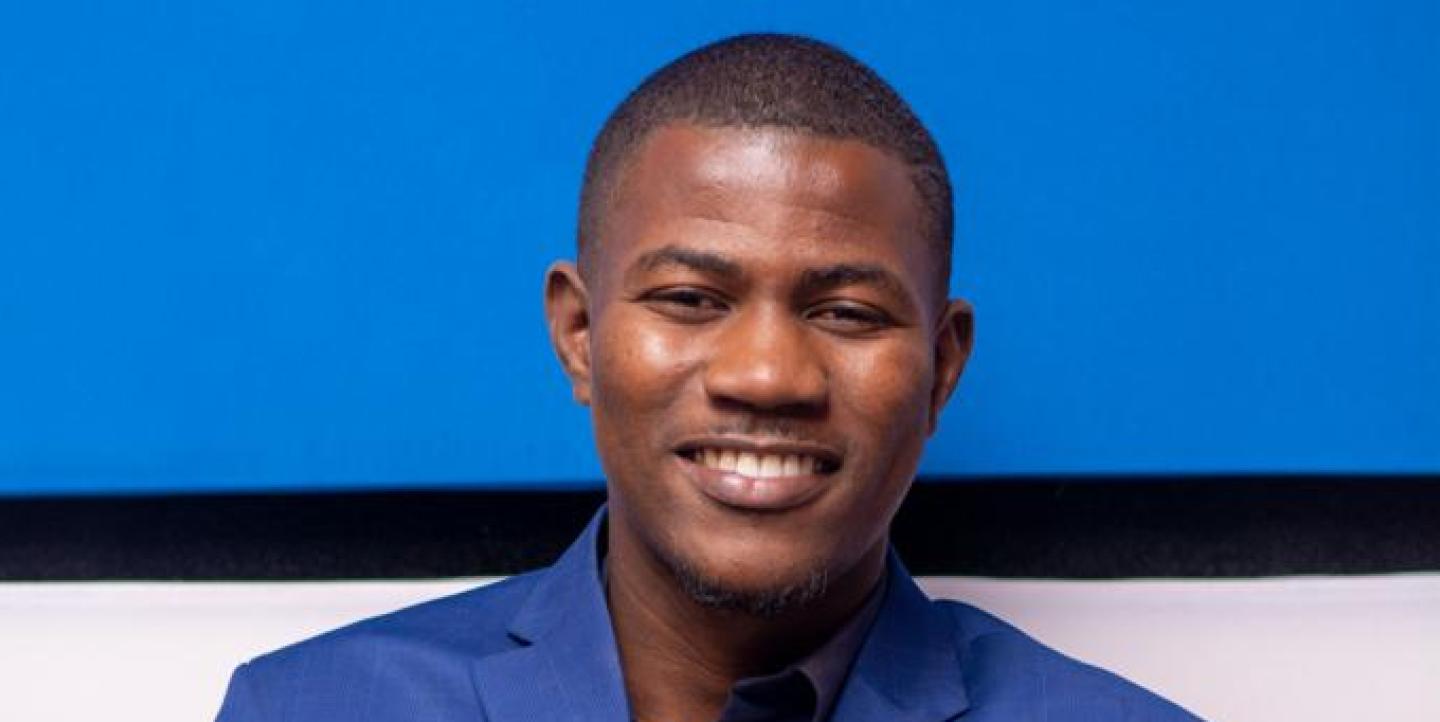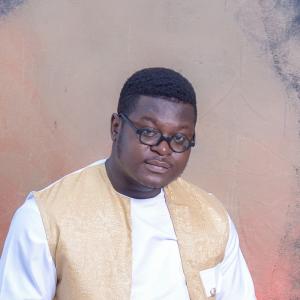Haitian reporter Jean Samuel Mentor didn’t always want a career in journalism. Initially, he aspired to pursue medicine, but getting a medical degree in Haiti was prohibitively expensive.
Mentor considered alternative paths as a result, and enrolled in journalism school. He did so despite resistance from family members who felt that journalism was both risky and unprofitable.
Since embarking on this new path in 2017, he has reported diligently on the daily lives of Haitians for Haitinews2000, where last year he was promoted to head of news. He is also an active member of ICFJ's French-language Pamela Howard Forum on Global Crisis Reporting, which has guided and influenced his reporting practices.
This year, Mentor won third place in the 2023 Bayeux Award for War Correspondents for his radio story, "Haïti: le corps des femmes, terrain de guerre des bandits" (Haiti: Women's Bodies, a Battlefield for Bandits). This prestigious award honors journalists who risk their lives to provide free information, working under challenging, perilous conditions.
Mentor's journalism career is rooted in a profound sense of responsibility to serve the public interest and contribute to the well-being of society. I spoke with him about his approach to journalism, his work as a reporter in Haiti, and how his engagement with the Global Crisis Reporting Forum has influenced his career.
What values do you embody in your profession?
I am committed to independence and steering clear of external pressures, whether they be political, economic or otherwise. My actions are guided by honesty and transparency, and I am vigilant in avoiding any relationships that could compromise my independence.
A cornerstone of my journalistic practice is a deep respect for ethical principles, including privacy, human dignity and fairness, as well as accuracy, integrity, independence and social responsibility. These principles serve as the foundation for maintaining the highest standards in my work, and they contribute to fostering trust and credibility in the information I provide.
As a young journalist in Haiti, what difficulties have you faced?
The primary challenge I face as a young journalist in Haiti is limited access to information, a critical aspect of our profession. Information is not consistently accessible in my country, making it rare to obtain testimonies.
This obstacle echoes my experience working in Burkina Faso, where I encountered a similar issue with restricted access to information. In the pursuit of fact-checking a story, I often find myself relying on quoting data from public authorities, despite not having direct access to the necessary information for thorough verification.
How have you benefited from IJNet during your career?
Thanks to IJNet's announcements of opportunities, I was informed about the 2023 Bayeux Award for War Correspondents, where I secured third place. IJNet has been instrumental in my journey, encouraging me to apply for various significant international prizes.
To me, IJNet serves as an open window to the realm of international journalism, and I am grateful for the wealth of knowledge and experiences it has afforded me over the years.
You are a member of ICFJ’s French-language Forum on Global Crisis Reporting. How have you benefited from this experience?
After winning a prize with OIF [Organisation Internationale de la Francophonie], I traveled to Burkina Faso to share my experiences in a newsroom. Following this experience, my desire to establish connections with foreign journalists intensified, driven by my aspiration to evolve into an international journalist. This led me to discover the Forum in March 2022.
Initially, I engaged on Facebook, and subsequently, I reached out to [Forum Manager Kossi Balao], eventually joining both the Facebook Forum and the WhatsApp group.
The various webinars organized by the community have been instrumental in enhancing my journalism skills. These sessions have not only provided valuable insights but have also guided me in finding compelling angles for my journalistic work.
The skills I acquired through these webinars have significantly enriched my professional background, empowering me to approach complex subjects more effectively, cover challenging situations safely, and elevate the overall quality of my reporting. For example, in a recent collaboration with another newspaper on the intervention of Kenyan police in Haiti, it was Forum colleagues who helped me find elected representatives and human rights organizations in Kenya.
Has any Forum programming been especially useful?
After joining the Forum, I initially participated in webinars focused on global crises. Admittedly, I felt somewhat out of step at the beginning, lacking the required experience, which made grasping certain concepts challenging. Despite this, I remained committed to attending the webinars.
I vividly recall one day on the Forum when an announcement about a webinar on long-form journalism caught my attention. This piqued my interest as I had recently completed a course in investigative journalism, and I saw it as a valuable addition to my skill set. The webinar featured two French journalists, and their insights further fortified my skills [as their advice was] directly applicable to my journalistic work. I live in Haiti, and you know how challenging it is for a journalist to work and exercise his profession due to the country's multidimensional crisis.
Another example is the webinar focused on press freedom in authoritarian regimes. This session played a pivotal role in deepening my understanding of the challenges confronted by journalists operating in repressive environments. I acquired valuable skills in safeguarding source confidentiality, navigating censorship and upholding freedom of expression amid adversarial conditions.
I must also highlight the impact of the webinar titled "What to do when you lack inspiration for your articles." This session proved to be immensely enriching, providing me with strategies to overcome periods of creative block. I gained insights into tapping into various sources of inspiration, employing effective brainstorming techniques, and sustaining creativity even in the face of challenges.
We previously organized a webinar focused on the coverage of political and security crises. How did that help you?
Participating in this training course significantly captured my interest. It equipped me with the skills needed to successfully produce two in-depth reports in challenging areas — one presented in audio and the other in written form. Remarkably, one of these reports earned a spot on the shortlist for the prestigious Bayeux Calvados Prize for War Correspondents. The second report, titled "Source Matelas: la vallée de la mort en Haïti," also garnered positive reception.
The advice and experience shared by experienced journalist Raphaël Mvogo during this webinar enabled me to go into the field, gather information efficiently and come back safe and sound.
What tips do you have for other journalists?
- Uphold the ethical principles of journalism.
- Strive for a diversity of sources.
- Cultivate a perpetual curiosity and a commitment to continuous learning. Explore new subjects and deepen your understanding of current issues.
- Maintain rigorous fact-checking practices. Precision is paramount in journalism. Take the necessary time to verify facts meticulously and promptly correct any inaccuracies.
- Foster relationships with fellow media professionals and actively engage in journalist fora. Connect with experts and reliable sources.
- Stay abreast of emerging tools and technologies.
- Love what you do and nurture your passion.
Photo courtesy of Jean Samuel Mentor.
This article was originally published on IJNet French. It was translated into English by Nourredine Bessadi.


